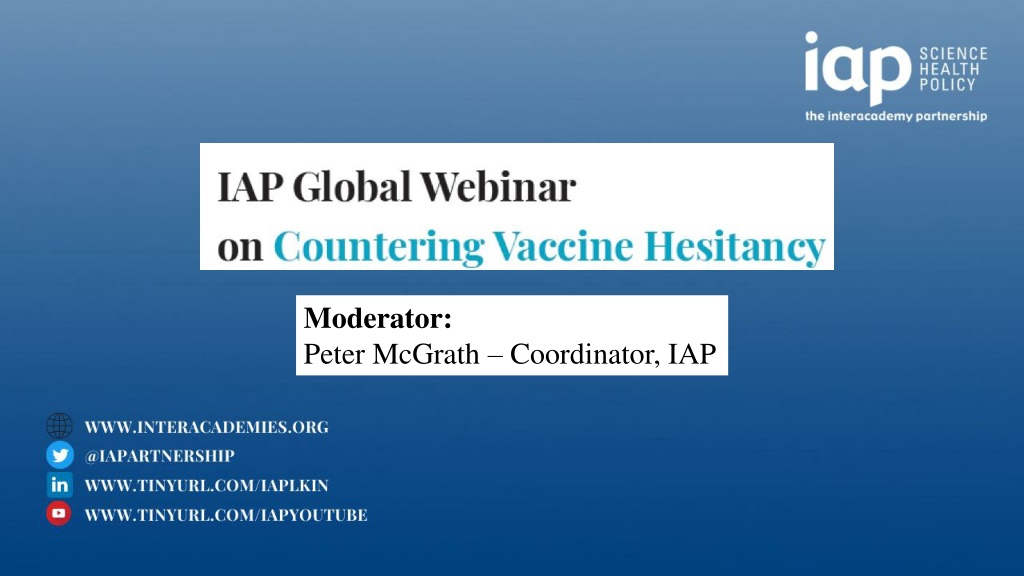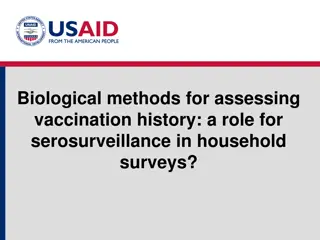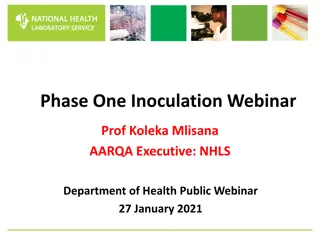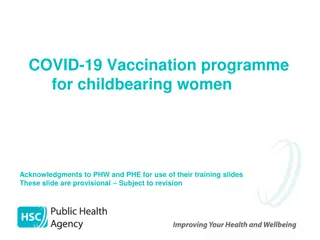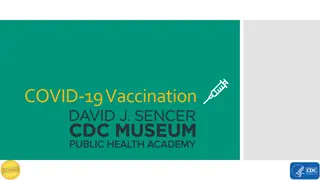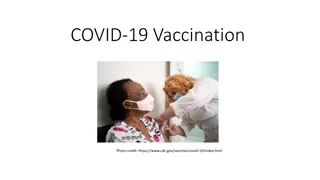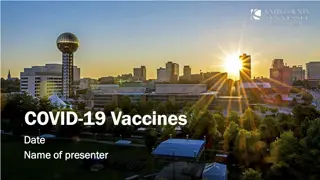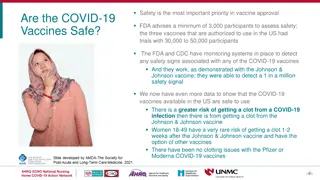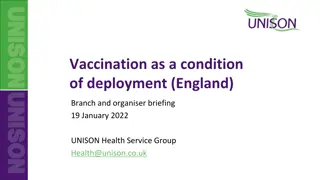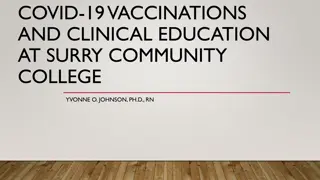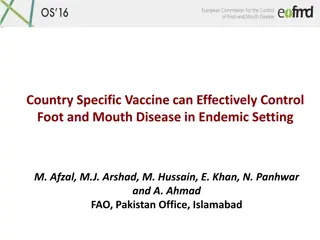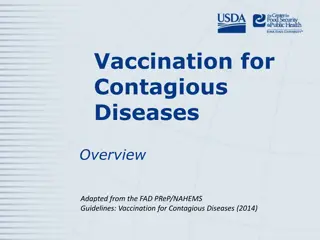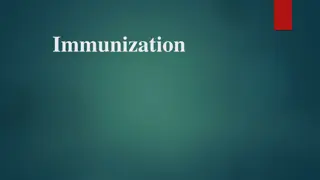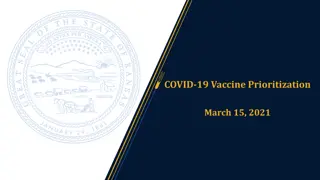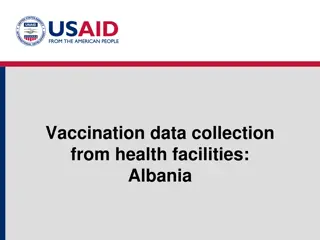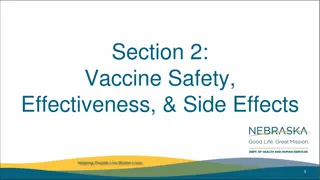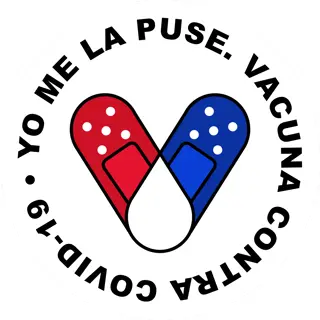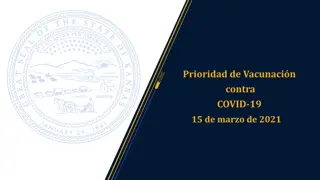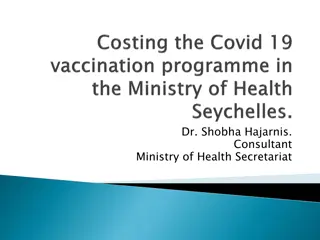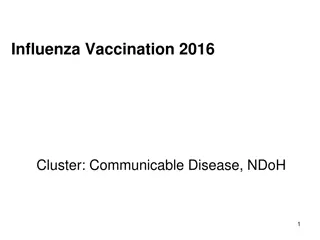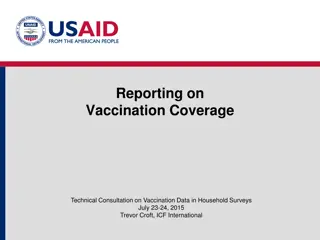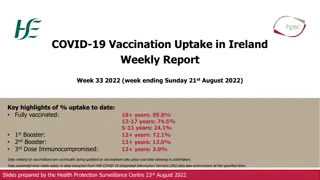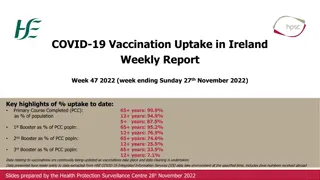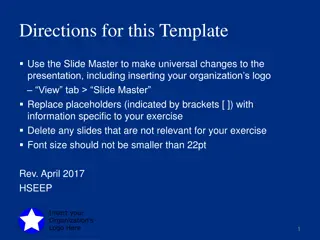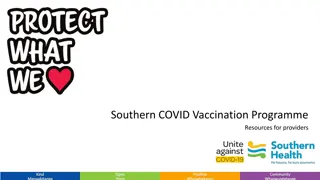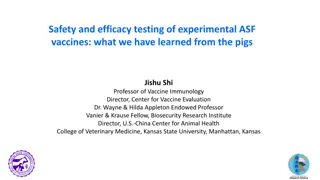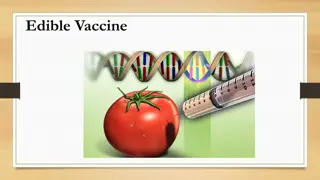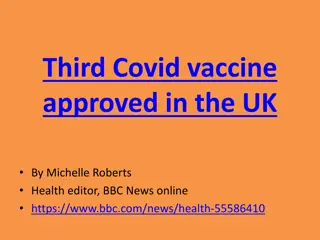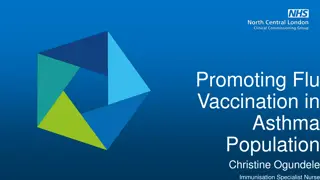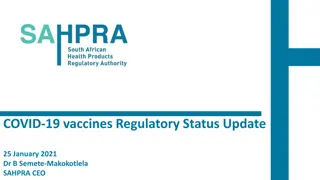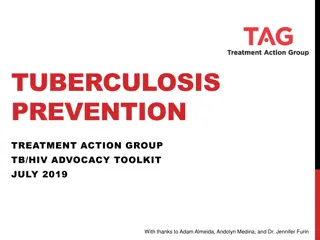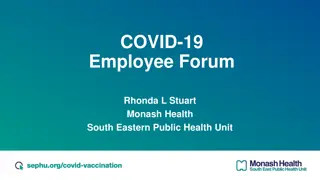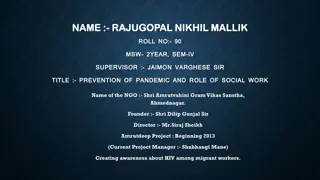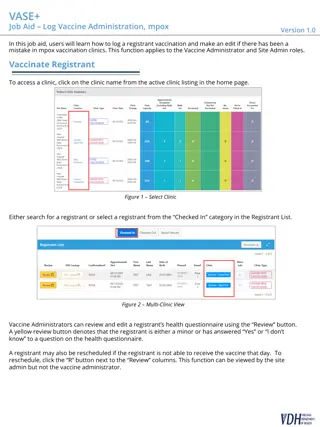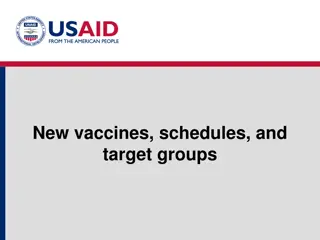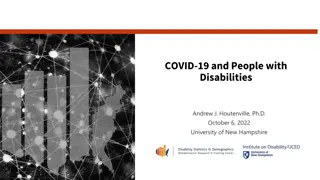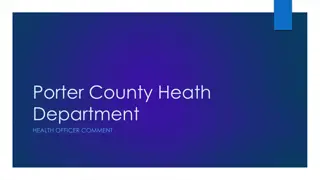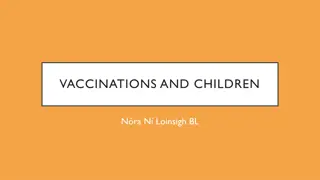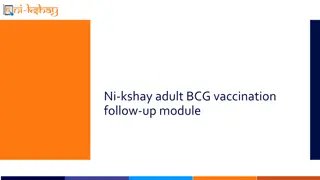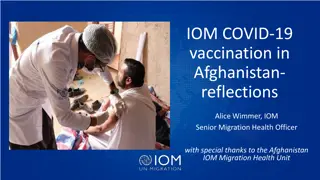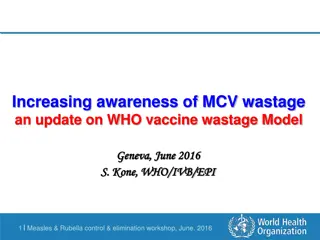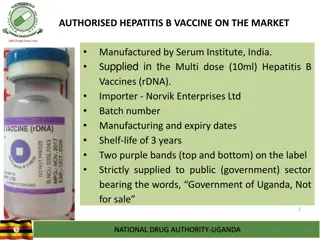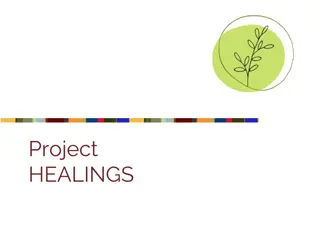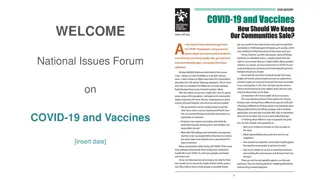National Vaccination Efforts: Building Trust in COVID-19 Vaccines
Supporting national vaccination efforts through trusted academies, this webinar aims to address vaccine hesitancy by providing evidence-based information. The event focuses on adapting ideas for different settings to establish a culture of trust in COVID-19 vaccines. Recommendations from the webinar will be shared in a comprehensive report post-event.
Uploaded on Oct 06, 2024 | 0 Views
Download Presentation

Please find below an Image/Link to download the presentation.
The content on the website is provided AS IS for your information and personal use only. It may not be sold, licensed, or shared on other websites without obtaining consent from the author. Download presentation by click this link. If you encounter any issues during the download, it is possible that the publisher has removed the file from their server.
E N D
Presentation Transcript
Moderator: Peter McGrath Coordinator, IAP
Housekeeping messages Recording The meeting will be recorded. Presentations will be made available on the IAP website and YouTube channel. Recording of the moderated discussion is mainly for note-taking purposes and will not be made public without explicit approval from those involved.
Housekeeping messages Chat and Q&A Please use the Chat function for general comments or questions of a technical (IT) nature. If technical problems persist, please contact admin@twas.org directly. For questions directed to the Speakers and later in the moderated discussion please use the Q&A function. After each speaker we will select one or two questions asking for clarifications. Other questions received will be reserved for the moderated discussion. When asking questions, please indicate which speaker it is for and also include your country. We will try to cover as many questions as possible in the moderated discussion. However, speakers may also choose to provide written answers using the Q&A function.
Why are we here? Vaccination is likely to provide the most effective tool that will help us emerge from the COVID-19 pandemic. In very broad terms, there are three kinds of people: those who will readily accept the vaccine those who will always refuse the vaccine and those who may require more information or more persuasion to take the vaccine. Those in this final category can be termed vaccine hesitant the causes of which are wide and varied, and often country or culture specific. Academies are trusted and credible voices We can use that credibility to counter hesitancy. This webinar is designed to support academies towards national vaccination efforts. It is seen as a capacity building exercise aimed at helping participants to build a culture of trust in the COVID-19 vaccines and to provide science based evidence to the general public. We hope to provide some ideas and tools that can be adapted to and used in different national settings. Following the event, we will try to define a set of recommendations that can be shared in a summary report.
Why are we here? Source: https://www.bloomberg.com/graphics/covid-vaccine-tracker-global-distribution/
Why are we here? World Source: https://ourworldindata.org/covid-vaccinations
Who is here? Fields of specialization Administration 10% Communication 10% Other sciences 34% Medical sciences 46% Administration Communication Medical sciences Other sciences Based on responses provided on registration form from more than 200 registrations.
Where are we from? Geographical regions Europe 28% Africa 33% 19% Asia/Pacific 20% Americas Africa Americas Asia Europe Based on responses provided on registration form from more than 200 registrations.
What are the factors behind vaccine hesitancy? - 1 Uncertainty Misinformation Disinformation Conspiracy theories How come they have been so quick to develop and register? Side effects are common and can lead to long-term problems. Vaccines cause autism (based on debunked MMR paper) They contain tracking devices Will they cause auto- immune responses? (Generic) concerns about safety and effectiveness, e.g. of additives/adjuvants Natural immunity is better than acquired immunity / Herd-immunity can save us They are designed to make you sterile Will they protect against emerging new strains? Vaccines can overwhelm the immune system They contain unsafe toxins They can turn you gay (Israel) Difficulty in accessing a trusted health centre / health professional The new RNA vaccines can change your DNA Can infect you with the disease they are supposed to protect against Women can grow beards (Zimbabwe) What if I have a pre- existing illness? Will I react badly? Vaccines are just a way for big-pharma to make money Strong belief of myths around vaccine and vaccinations (Tanzania) Based on responses provided on registration form and other sources.
What are the factors behind vaccine hesitancy? - 2 Uncertainty Misinformation Disinformation Conspiracy theories Can I trust that the cold- chain requirements have been maintained? Distrust of the vaccine trials in Africa, driven by popular but misguided guinea pig narrative. Some vaccines are developed using human embryos so are unethical. Belief that COVID-19 itself is a hoax. Inadequate exposure to the science behind the development of the vaccines. mRNA vaccines can induce production of more Corona viruses or genome modifications. Low income communities can consider COVID a disease of the rich, thus perceive it is not their problem and do not see the need to get vaccinated against a disease that does not affect them (Zambia). Women may be unable to have children. Alleged practices of superpowers and other advanced nations to use biochemical weapons against defenceless African and other developing populations (Zimbabwe). Diversity of sources of information. "Bill Gates wants to place a chip in our body" (Ecuador). Based on responses provided on registration form and other sources.
What are the factors behind vaccine hesitancy? - 3 Uncertainty Misinformation Disinformation Short duration of production of vaccines brings safety worries. Side effects - since it is a new vaccine still considered as experimental. Lack of a counter-narrative to misinformation and disinformation spread on social media. How come we don t have vaccines for other viruses (e.g. HIV) yet? Lack of proper information coupled with misinformation supplied by social media and regretfully by established political authorities (Brazil). Complete lack of political commitment from the top leader of the country (Tanzania). Mixed messages from governments (e.g. not for over 65s, or even over 55s). Constantly changing information. History of medical racism and iatraphobia experienced by BIPOC/BAME. Ignorance/Poor health education. The fact that during H1N1 epidemics, many vaccinated children developed narcolepsy as an effect secondary to one of the adjuvants used in the vaccine (Sweden). Based on responses provided on registration form and other sources.
Housekeeping messages Recording The meeting will be recorded. Presentations will be made available on the IAP website and YouTube channel. Recording of the moderated discussion is mainly for note-taking purposes and will not be made public without explicit approval from those involved.
Housekeeping messages Chat and Q&A Please use the Chat function for general comments or questions of a technical (IT) nature. For questions directed to the Speakers and later in the moderated discussion please use the Q&A function. After each speaker we will select one or two questions asking for clarifications. Other questions received will be reserved for the moderated discussion. When asking questions, please indicate which speaker it is for and also include your country. We will try to cover as many questions as possible in the moderated discussion. However, speakers may also choose to provide written answers using the Q&A function.
